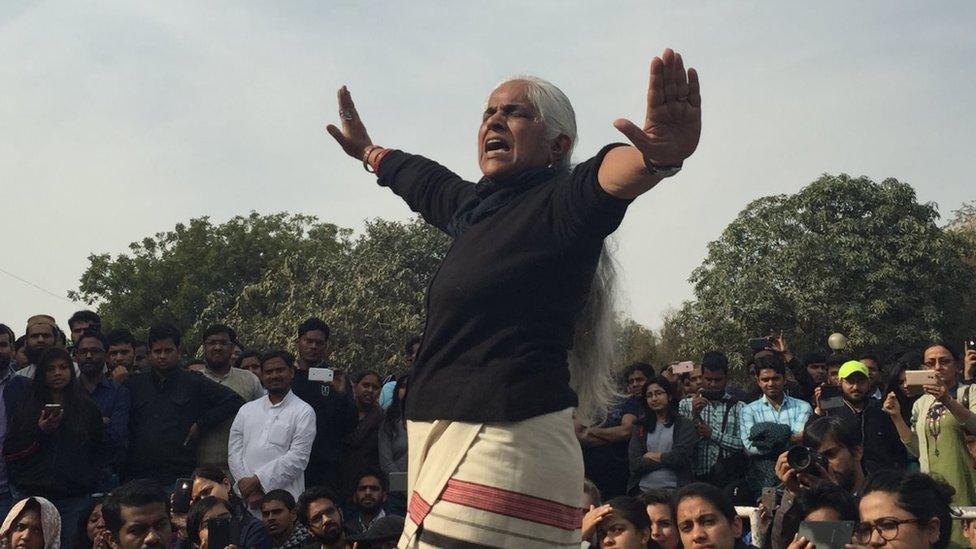Five India 'sedition' students return to JNU
- Published
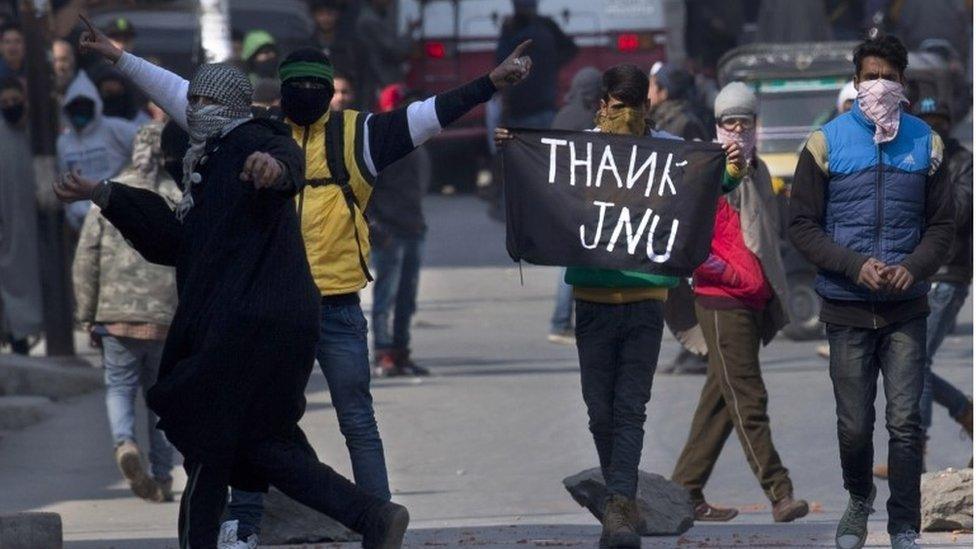
Police arrested JNU student union head Kanhaiya Kumar (not pictured) sparking protests in Delhi and other parts of the country
Five Indian students facing charges of sedition after organising a protest at Delhi's prestigious Jawaharlal Nehru University (JNU), have resurfaced.
The protest on 9 February was over the 2013 hanging of Kashmiri man Mohammed Afzal Guru and allegedly saw the chanting of anti-India slogans.
Police arrested JNU student union head Kanhaiya Kumar on sedition charges but also named five other organisers.
The arrest led to protests and clashes in Delhi and universities across India.
Government ministers have refused to back down and vowed to punish what they describe as "anti-national elements", but critics condemned the charges as an assault on freedom of expression.
The five students - named as Umar Khalid, Anirban Bhattacharya, Ashutosh Kumar, Anant Prakash Narayan, Riyazul Haq and Rama Naga - went missing after they were named by police.
They returned to campus late on Sunday night and addressed other students holding a vigil, reports said.
A section of the media had accused Umar Khalid of having links with the Pakistan-based Islamist militant group Jaish-e-Mohammad, although the government later denied the reports.
"...I'm not a terrorist. I have never projected myself as a Muslim while doing politics on campus. I always tried to see exploitation of Muslims along with the exploitation faced by Dalits, tribals and others," Mr Khalid told a gathering.
After news of the students return, police turned up at the JNU campus, Press Trust of India said, but reports say they need permission from university authorities to enter and arrest the students.
At one of Mr Kumar's court appearances, he was set upon by a group of lawyers, an act which further inflamed public opinion.
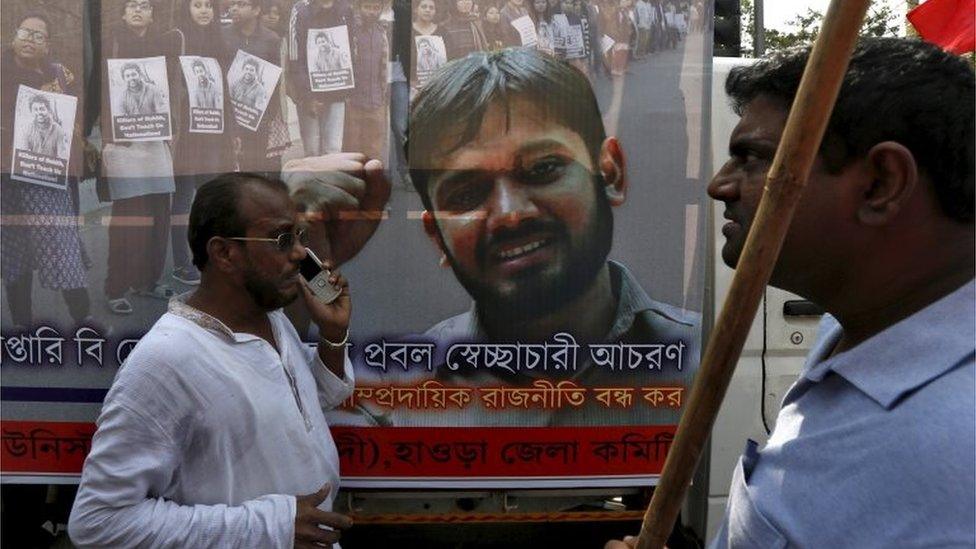
The arrest of Kanhaiya Kumar has also become a political rallying point for many opposition parties in India
The protests triggered by the arrest and treatment of Mr Kumar spread far and wide with students from the southern city of Chennai (Madras) and in the eastern city of Kolkata (Calcutta) involved in violent clashes.
Afzal Guru was executed over a 2001 plot to attack India's parliament - charges he always denied. The attack was carried out by Kashmiri militants and left 14 people dead.
His 2013 hanging sparked protests in Kashmir, and he was seen as a martyr and a symbol of perceived injustice. But many of India's politicians were angered when reports surfaced of anti- India slogans chanted at the protest held to mark his execution.
Correspondents say there has been a sharp rise in the number of sedition cases in recent years and many students see the latest moves as an attack on their right to dissent.
- Published15 February 2016
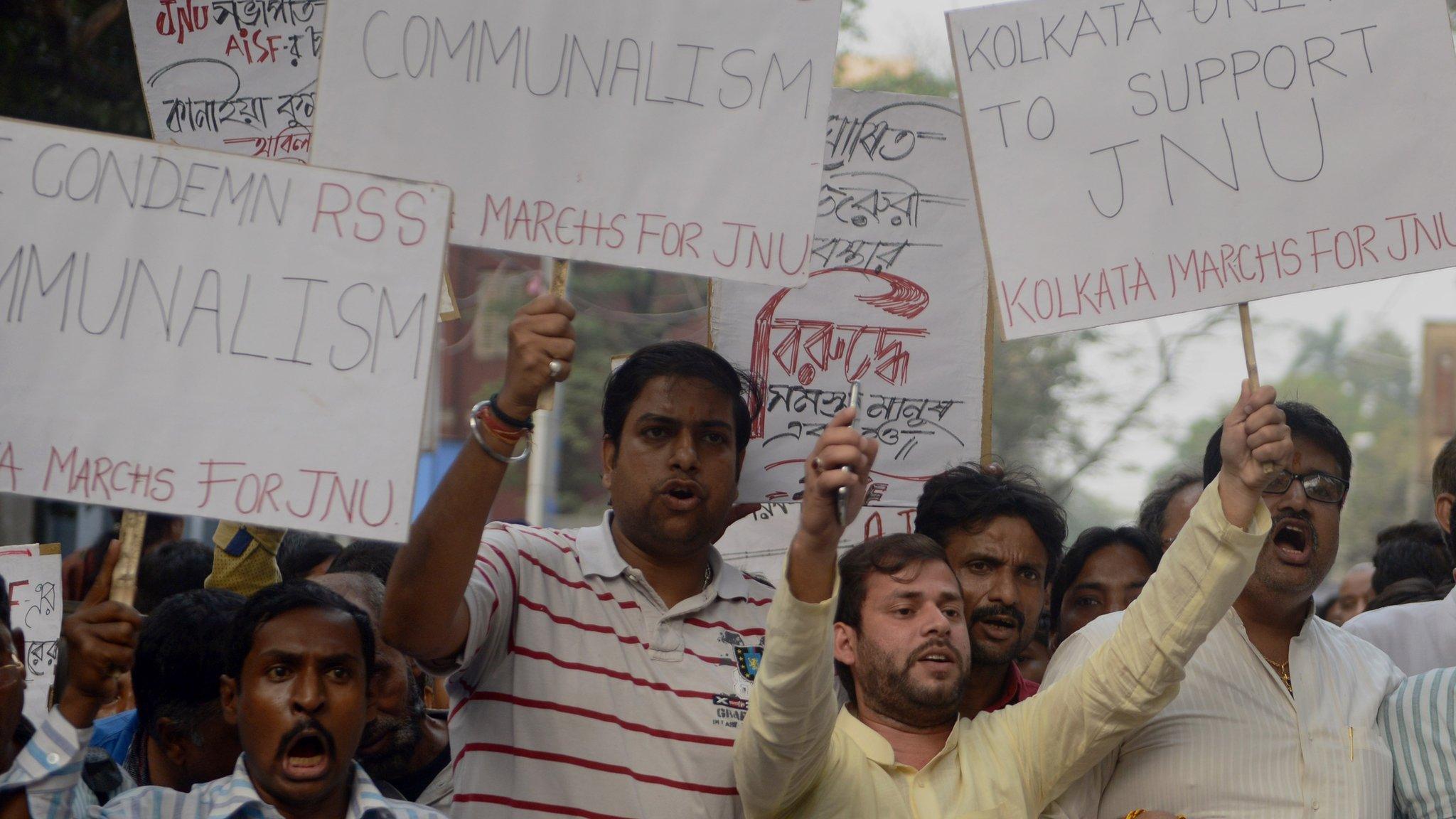
- Published18 February 2016
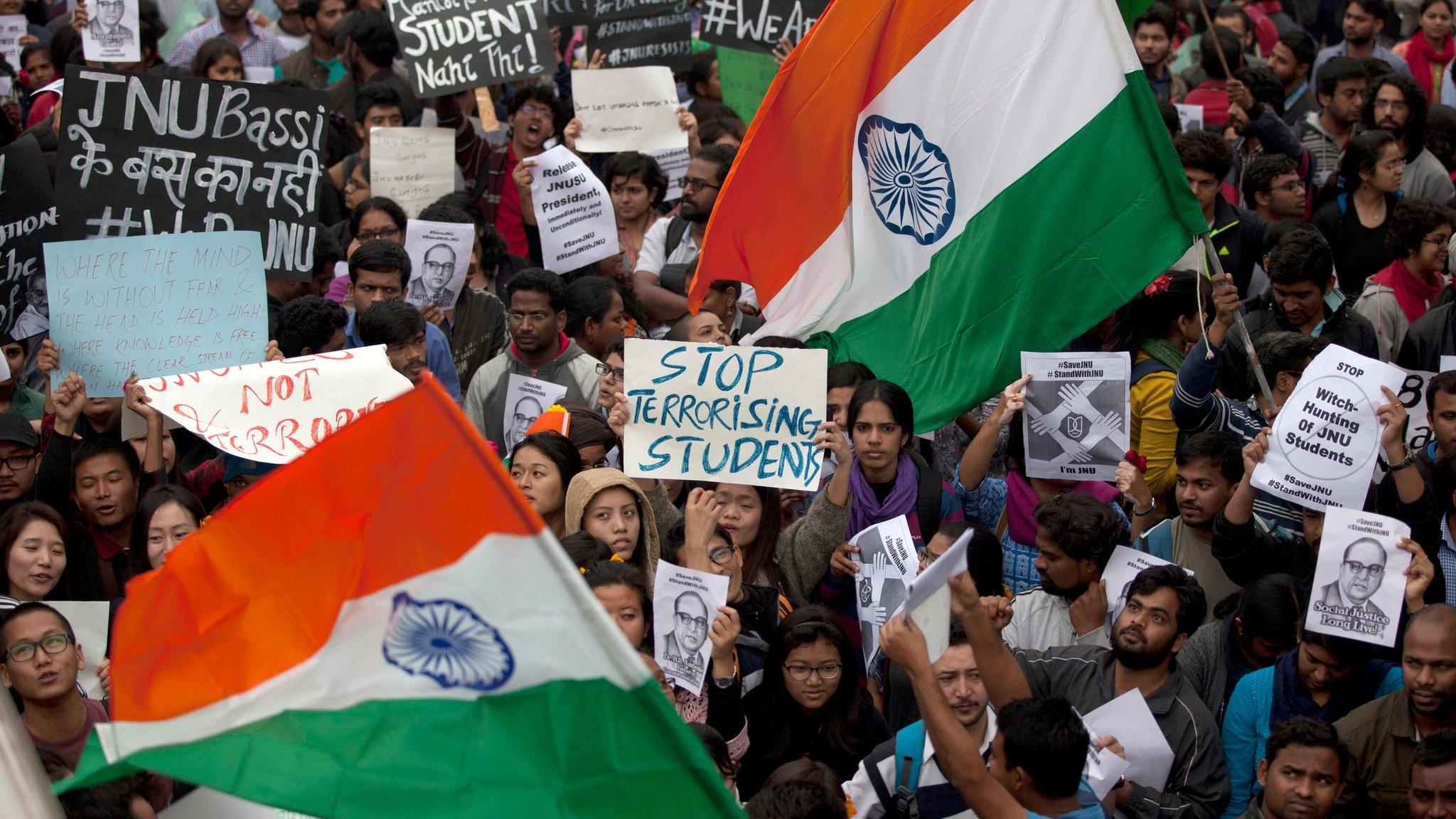
- Published17 February 2016
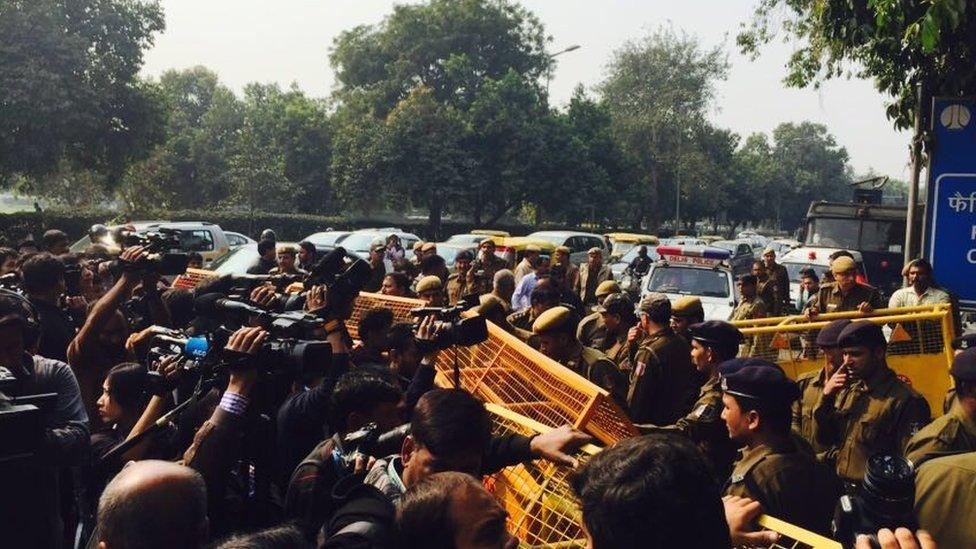
- Published16 February 2016
